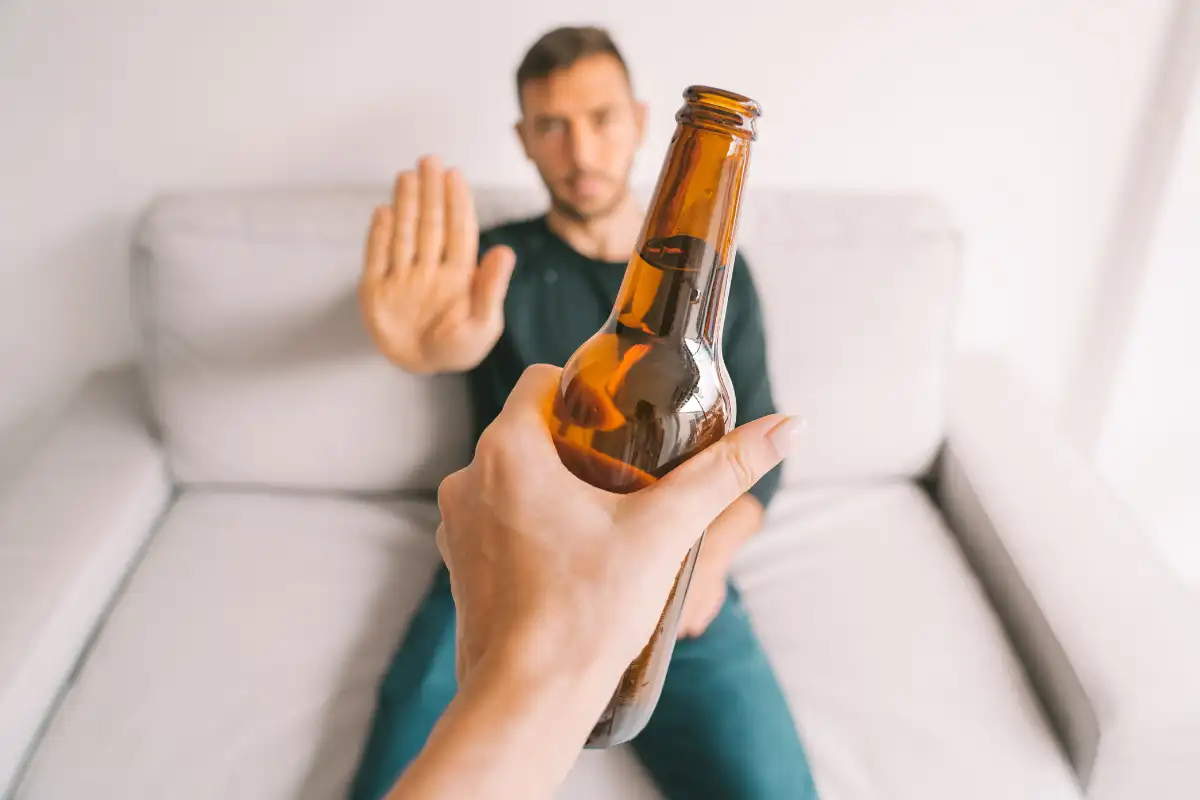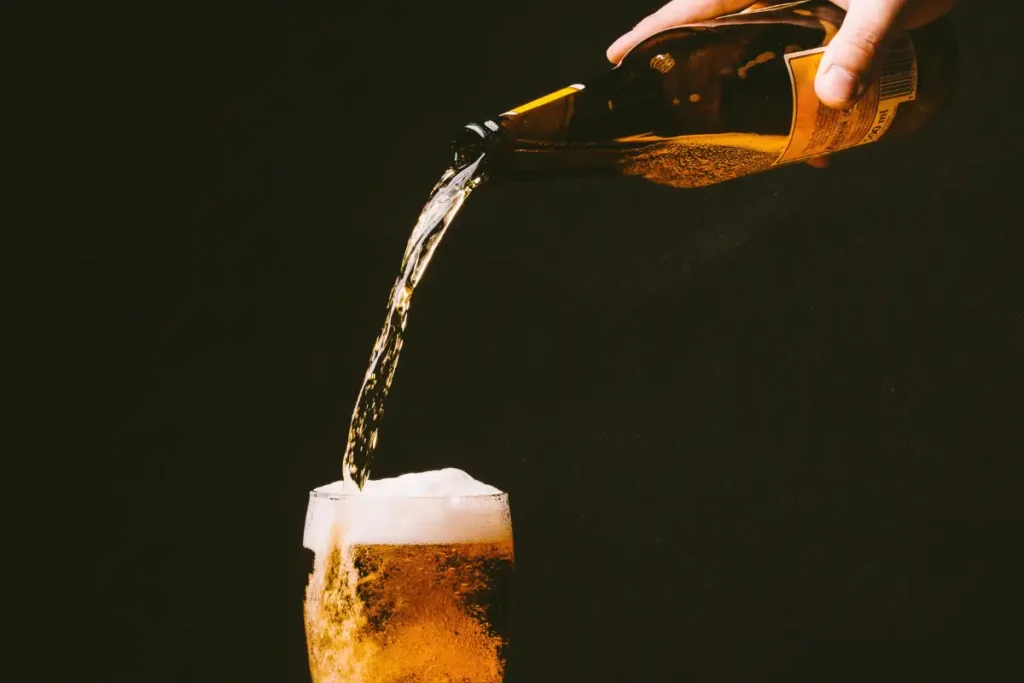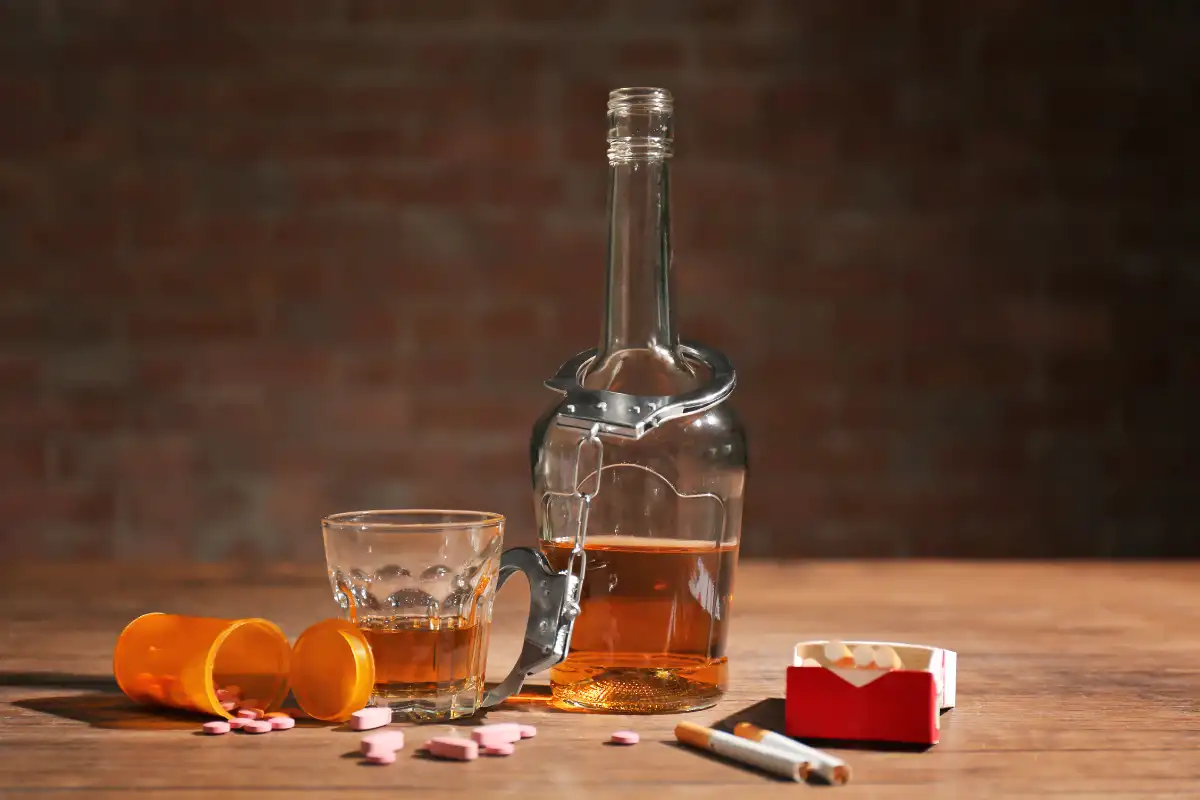
For many people in recovery from drug addiction, one of the hardest things to accept is the idea that alcohol — something so socially accepted and legal — is also off-limits. You might think, “I’m not addicted to alcohol, so what’s the harm in having a drink?” or “I’ve given up drugs, but surely I can still relax with a glass of wine.”
It’s a common question and a tempting thought. But as anyone who’s been through addiction treatment or long-term recovery knows, alcohol and sobriety simply don’t mix — even if your addiction was to drugs and not alcohol.
At 10 Acre Ranch, we help men and women rebuild their lives after addiction, and one of the most important lessons we teach is that sobriety means freedom — not substitution. In this article, we’ll explain why drinking alcohol can jeopardize your recovery, how it affects your brain and behavior, and why staying completely substance-free gives you the best chance at lasting healing.
The Myth of “Just Drinking” After Drug Addiction
When someone stops using drugs, they may tell themselves that alcohol is harmless because it’s not their “drug of choice.” They might even feel like they’ve earned the right to have a drink after giving up something harder — like heroin, meth, or cocaine.
But addiction doesn’t discriminate between substances. Whether your brain was hooked on opioids or stimulants, alcohol targets many of the same reward pathways and triggers similar cravings. Even a single drink can reignite the same patterns that led to drug use in the first place.
Here’s the truth: if you’ve struggled with addiction before, you are more vulnerable to developing a new addiction, even to substances you’ve never abused before. This phenomenon is called cross-addiction.
Understanding Cross-Addiction
Cross-addiction (also called addiction transfer) occurs when someone in recovery from one substance develops a new addiction to another. The root cause isn’t the substance itself, but how your brain’s reward system has been conditioned to seek out mood-altering chemicals.
When you use drugs, your brain releases large amounts of dopamine — a chemical linked to pleasure, motivation, and reward. Over time, your brain adapts and becomes dependent on external substances to feel “normal.”
Even after detox and treatment, your brain remains sensitive to that same cycle of reward and craving. When you drink alcohol — even if it’s not your “problem drug” — you stimulate that same reward system. This can easily awaken dormant cravings for your drug of choice and lead you right back to old patterns.
At 10 Acre Ranch, we see this happen all too often: a person who was once addicted to meth or opioids starts having a few drinks, then suddenly finds themselves using again. It’s not weakness — it’s brain chemistry.
How Alcohol Affects the Recovering Brain
Alcohol is a central nervous system depressant, meaning it slows brain activity and reduces inhibition. In small amounts, it can make you feel relaxed, social, and confident. But it also impairs judgment, lowers self-control, and distorts your ability to make rational decisions — the very things you need to protect your recovery.
When you drink, even casually:
- You’re more likely to rationalize poor decisions (“One time won’t hurt.”).
- You lose awareness of your limits and boundaries.
- You’re more likely to be around old friends or environments that trigger drug cravings.
- You weaken the brain’s inhibitory control, which is vital in maintaining sobriety.
Essentially, alcohol disarms your defense mechanisms. You might not pick up your old drug immediately, but drinking reopens the door you worked so hard to close.
The Risk of Cross-Tolerance
Another issue that connects drug addiction and alcohol is cross-tolerance — when tolerance to one substance makes your body more resistant to another similar one.
For example, opioids and alcohol both depress the central nervous system. So if you were addicted to opioids, your body might already have a higher tolerance to alcohol. This means you’d need to drink more to feel the same effects — a fast track to physical dependence or alcohol poisoning.
In people who have used stimulants like cocaine or meth, alcohol can have an even more dangerous effect: it dulls the crash or “comedown,” leading you to drink more and longer than intended. Over time, that can create a new addiction or set the stage for relapse into your original drug use.
“But I Just Want to Be Normal Again”
It’s natural to miss the sense of normalcy that addiction takes away — being able to socialize, unwind, or celebrate without feeling deprived. Many people in early recovery crave the ability to “just be like everyone else.”
But here’s something to consider: your relationship with substances will never be like everyone else’s. Addiction changes your brain’s chemistry and reward response permanently. While you can heal and recover, your brain’s sensitivity to drugs and alcohol doesn’t reset to zero.
Trying to drink “normally” after addiction is like playing with fire in a room filled with gasoline. It might seem safe at first — until it isn’t.
At 10 Acre Ranch, we encourage our clients to redefine what “normal” looks like. True normalcy isn’t about fitting into society’s drinking culture. It’s about living with peace, stability, and control — none of which alcohol can provide.
Alcohol Is Still a Drug
One of the biggest misconceptions is that because alcohol is legal, it’s somehow safer or less addictive. But in reality, alcohol is one of the most dangerous and addictive substances in the world.
According to the National Institute on Alcohol Abuse and Alcoholism (NIAAA), nearly 29.5 million Americans struggle with Alcohol Use Disorder (AUD) — more than the number who misuse all illicit drugs combined. Alcohol contributes to over 140,000 deaths per year in the United States.
From a medical standpoint, alcohol is a drug — one that alters mood, cognition, and behavior. When someone recovering from drug addiction begins drinking, they’re reintroducing a mind-altering chemical into their body, reigniting the cycle of addiction.
Recovery means learning to live without substances that change your brain chemistry — and alcohol is no exception.

Need Help? Let’s Talk!
Your path to recovery begins with a simple conversation.
Call now to speak confidentially with an admission counselor.

The Emotional Connection Between Drugs and Alcohol
Addiction is not just physical — it’s deeply emotional. Many people used drugs or alcohol as coping tools: to handle anxiety, depression, trauma, or stress. Even if you stopped using drugs, if you start drinking again, you may unconsciously fall back into that same emotional pattern.
For instance, you might think:
- “I’m stressed, I deserve a drink.”
- “I’m anxious, alcohol helps me calm down.”
- “I feel lonely — a drink might help me relax.”
That’s the same reasoning that fuels drug use. So while the substance might be different, the emotional dependency remains the same. Real recovery means developing new, healthy coping skills — not substituting one addictive behavior for another.
How Alcohol Use Impacts Recovery Goals
Every aspect of addiction recovery — physical health, mental clarity, emotional balance, spiritual growth — can be derailed by alcohol use.
1. Mental Health Stability
Alcohol is known to worsen anxiety, depression, and sleep issues. For someone in recovery, this can interfere with therapy progress and emotional regulation.
2. Medication Conflicts
If you’re taking prescribed medications (such as antidepressants, antianxiety meds, or opioid blockers like naltrexone), alcohol can interfere or create dangerous side effects.
3. Relationship Strain
Drinking can damage the trust and stability you’ve been rebuilding with family, partners, or recovery peers.
4. Loss of Community
Most recovery programs (like 12-Step groups, SMART Recovery, or support groups) emphasize complete abstinence. Drinking can isolate you from these communities and reduce accountability.
5. Triggers and Relapse Risk
Even if you start drinking with good intentions, alcohol lowers your defenses. A single night out can turn into a full relapse spiral.
Sobriety Isn’t Deprivation — It’s Liberation
Many people fear that sobriety means missing out on life — but in reality, it’s the opposite. When you commit to full abstinence, you’re choosing clarity, control, and genuine joy over short-term relief.
Here’s what many people discover at 10 Acre Ranch:
- You build self-respect and pride in keeping promises to yourself.
- You experience emotions fully instead of numbing them.
- You learn new ways to connect with others — authentically and sober.
- You wake up clear-headed, without regret or shame.
Sobriety opens the door to growth. Alcohol closes it.
What to Do if You’re Struggling With the “No Drinking” Rule
If you’re in recovery and find yourself craving alcohol, that’s not a sign of failure — it’s a signal that something deeper needs attention. Cravings often appear when you’re stressed, bored, isolated, or emotionally overwhelmed.
Here are a few healthy ways to cope:
- Talk about it. Open up to your sponsor, therapist, or support group. Shame thrives in silence.
- Avoid triggers. Stay away from environments where alcohol is the focus, especially early in recovery.
- Practice grounding techniques. Deep breathing, meditation, or exercise can help redirect your focus.
- Reflect on your progress. Remind yourself how far you’ve come — and what’s at stake.
- Seek professional help. If alcohol use has already started creeping in, don’t wait for a relapse. Reach out for help immediately.
At 10 Acre Ranch, we often see clients who relapsed because they thought alcohol was harmless. With compassionate care and structured support, they rediscover why complete abstinence is the cornerstone of lasting recovery.
Integrated Treatment at 10 Acre Ranch
At 10 Acre Ranch, we understand how intertwined drug and alcohol use can be. That’s why our treatment programs are designed to address all forms of substance use, not just a single addiction.
Our Southern California facility provides:
- Medical Detox: Safe, supervised withdrawal from drugs and alcohol.
- Residential Treatment: 24/7 support, therapy, and structure to build healthy habits.
- Dual Diagnosis Care: Integrated treatment for co-occurring mental health issues.
- Therapy & Counseling: Individual, group, and family sessions focused on coping skills, relapse prevention, and emotional healing.
- Peer Support: A strong recovery community that fosters connection and accountability.
Whether you’re recovering from opioids, stimulants, or alcohol, our approach focuses on long-term wellness — not just short-term abstinence.

Living a Sober Life You Love
Staying sober isn’t about living in restriction — it’s about living with intention. When you remove alcohol and drugs from your life, you make space for something greater: purpose, peace, and possibility.
You might rediscover old passions, rebuild trust with loved ones, or find strength in helping others recover. These are the real rewards of sobriety — the ones that no substance can ever provide.
Recovery doesn’t mean you’re missing out. It means you’re finally free to experience life the way it’s meant to be lived — with clarity, connection, and gratitude.
Final Thoughts: Why You Can’t Drink Alcohol if You’re a Drug Addict
The simple answer is this: because it keeps you trapped in the same cycle you’re trying to escape.
Addiction doesn’t care what the substance is — drugs, alcohol, or anything else. What matters is the behavior, the brain chemistry, and the loss of control that comes with trying to manage your emotions with substances.
At 10 Acre Ranch, we’ve helped thousands of people see that sobriety isn’t about giving up — it’s about gaining back everything that addiction took away.
If you or someone you love is struggling with drug addiction, alcohol use, or relapse, help is just a phone call away. Reach out to 10 Acre Ranch today and discover the freedom, clarity, and purpose that come from living fully sober.






